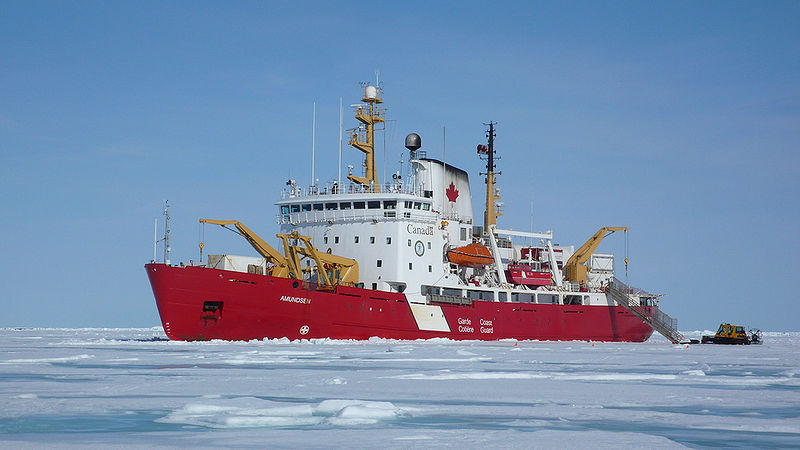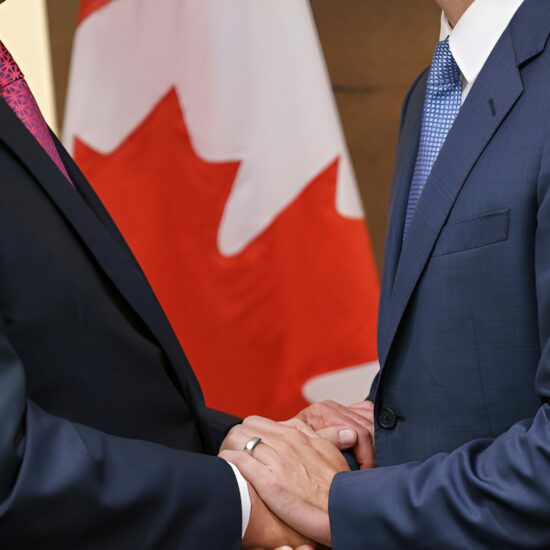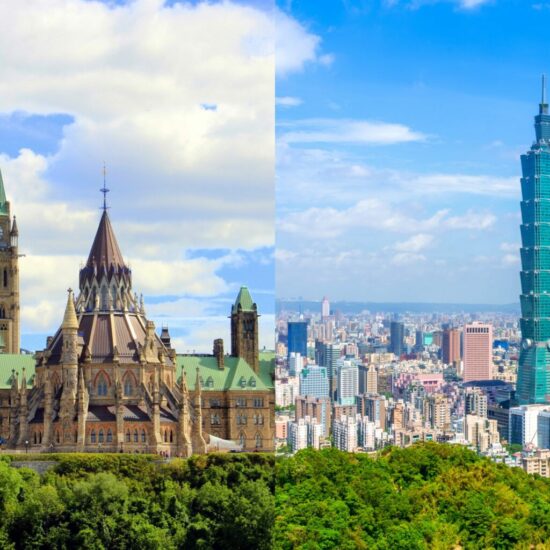
Image credit: Tatiana Pichugina
An abridged version of this article was featured in the Hill Times.
A rapidly evolving Arctic environment has turned the North into a new frontier of international economic, political, and environmental importance, intensifying geopolitical rivalries in a region that is in many regards a microcosm of the increasingly multipolar international system. This complicates Canada’s foreign policy in the North, particularly toward Russia, as many Canadian policymakers continue to view Arctic geopolitics through the familiar lens of competition and conflict with Russia that defines Russo-Canadian relations in other regions. Nevertheless, despite adversarial relations in Eastern Europe and the Middle East, Ottawa and Moscow have continued to selectively engage and cooperate as core members of the Arctic Council. As the two largest Arctic states and neighbours via the Arctic Ocean, both nations face shared challenges in regard to sea route claims disputed by the United States, health crises among their Indigenous populations, as well as providing search and rescue and oil spill cleanup services in the North. Following a Northern strategy that is rooted in selective engagement—prioritizing engagement and cooperation in the Arctic region while also permitting strategic competition elsewhere—stands out as an especially promising approach to Canada’s Arctic foreign policy.
At a Glance: Moscow and Ottawa in the Arctic
Canada’s investment in the Arctic largely began in the Cold War period, when it jointly established the North American Aerospace Defense Command (NORAD) and the Distance Early Warning System with the United States. While Canada has invested in political self-determination for Northern territories in recent decades, it has largely lagged in terms of overall investment in infrastructure and military capabilities. For years, Canada’s attempts to build a new icebreaker, the John G. Diefenbaker, which would join its existing fleet of 18 icebreaker ships, have been largely unsuccessful due to a myriad of delays and budget cuts. More recently however, the melting of icecaps brought on by climate change has resulted in the increased accessibility of the Northwest Passage as a potential trade route, bringing renewed importance to Canada’s Northern front.
In 2019, Canada released the Arctic and Northern Policy Framework, which outlined the federal government’s new priorities, investments, and activities in the Arctic. Yet, Ottawa must still do more to fully adapt to the new and changing strategic context in the North. As Arctic researchers Peter Kikkert and Whitney Lackenbauer note, the Framework has not offered concrete budgets and timelines to adequately address the pressing challenges in the remote and sparsely populated region. Overall, it is not clear whether Canada is ready for the added international interest that its Northern border is expected to receive over the coming years as the Arctic continues to grow in strategic importance. Given that Canada considers the route to be within its internal and territorial waters, Ottawa could be expected to conduct search and rescue operations as well as provide oil spill clean up services to vessels travelling through the Northwest Passage. At the moment, Canada’s inability to provide such necessary services could discourage potential investment and travel in the region. In order to guarantee safe passage to vessels and achieve the Arctic Framework’s central objectives such as strengthening “bilateral cooperation with Arctic and key non-Arctic states and actors,” Canada will have to cooperate with its largest neighbour in the North, Russia.
While the Arctic has long been considered to be economically and militarily critical for Russia, the increased viability of Arctic resource shipping and growing Chinese investment have further accelerated development in its Northern regions. According to the Arctic Institute, Russia’s Arctic and sub-Arctic regions constitute “90 percent of Russia’s natural gas production and 10 percent of its oil production”—sectors upon which the Russian economy depends. In 2019, Russia’s Representative in the Arctic Council Nikolay Korchunov stated that “the Arctic regions in the country account for around 10% of GDP and almost 20% of Russian exports.” Earlier this year, Russia announced that the Arctic would be the centre of its new liquefied natural gas (LNG) development plan, “which aims to boost Russia’s annual LNG production to 140 million tons by 2035.” Russia also possesses a fleet of over 40 icebreakers and maintains a local population of approximately two million in its large Northern coastal cities such as Murmansk and Arkhangelsk. Prioritizing the Arctic has also allowed Moscow to develop the Northern Sea Route, a rapidly developing Arctic passage that may be used as a shorter alternative to the Suez Canal shipping route.
Currently, much of the discourse on Arctic geopolitics focuses not on possible areas of engagement between Canada and Russia, but rather on the risk that Russia poses to Canada in the region. Russia’s development of its own resources and military capabilities has been cast by Western media as a zero-sum threat and a “scramble for the Arctic.” In response to such concerns over a military confrontation with Russia, Ernie Regehr, Senior Fellow in Arctic Security and Defence, has observed that “there is no realistic situation in which the [Royal Canadian Armed Forces] will have to engage hostile aircraft in the region,” and that Moscow would have “little to gain” from such “a shooting war.” Rather, it is important to carefully assess Russia’s strategy and posture in the North to recognize that Moscow does not stand to gain from adopting an aggressive approach to the Arctic. It is also important to note that despite Canada’s tense relations with Russia following its annexation of Crimea, the two have continued to cooperate on Arctic matters through the Arctic Council, the leading organization for cooperation on circumpolar issues and especially designed to avoid “hard” security matters.
Shared Challenges in Northern Trade Routes
The Northwest Passage and the Northern Sea Route are the backbones of both Canadian and Russian respective Arctic policies. In the past, Russia has informally recognized Canada’s claims to the Northwest Passage, reflecting its own claims to the Northern Sea Route. Canadian experts have noted that Russia and Canada have “identical legal perspectives on the Northern sea routes.” Notably, the U.S. has refused to recognize either Canada’s or Russia’s claims to the routes in order to avoid setting a precedent that could restrict its access to strategically vital waterways in other regions.
While Russia’s recent moves to expand its claim in the Arctic Ocean to around 200 nautical miles off of Canada’s coast has prompted concern, these actions remain consistent with Russia’s preference to follow international law and prioritize cooperation in the Arctic. Since it first ratified the UN Convention on the Law of the Sea in 1997, it has submitted all territorial claims to the UN Commission on the Limits of the Continental Shelf. As such, Moscow’s cooperative strategic posture in the Arctic stands in stark contrast with its unilateral projection of force in Ukraine.
Cooperation on “Soft” Security Issues
Russia has signaled that it looks favorably upon the prospect of bilateral Arctic cooperation with Canada. In an interview earlier this year, Nikolay Korchunov reaffirmed Russia’s interest in cooperating on matters relating to the “environment, transport, telecommunications, scientific activities, financing of infrastructure and socio-economic development, responding to potential emergencies, or providing contacts between people.” This sentiment was also reflected in a recent statement by the Russian Charge d’Affaires in Canada Vladimir Proskuryakov, who described the prospects for Arctic cooperation as “generally positive” despite acknowledging the “political difference” between Ottawa and Moscow. Proskuryakov identified specific areas for cooperation as the exchange of knowledge on the “implementation of educational, medical, including anti-coronavirus, programs and socially important projects” as well as “cooperation in environmental management.”
From the Canadian perspective, the 2019 Framework report urged Ottawa to “take steps to restart a regular bilateral dialogue on Arctic issues with Russia in key areas related to Indigenous issues, scientific cooperation, environmental protection, shipping and search and rescue.” Most recently, at the first Arctic Council Ministerial meeting chaired by Russia, Canadian Minister of Foreign Affairs Marc Garneau spoke with his Russian counterpart, Sergey Lavrov, and released a statement that Ottawa will “continue to work with all Arctic states” on economic, social, cultural, and environmental issues in the region.
While it is prudent to remain vigilant about Moscow’s motives, pragmatic engagement and cooperation on issues that are vital to Canada’s Arctic strategy could enhance Ottawa’s evolving role in the North. The two have already signed various bilateral treaties for Arctic cooperation and become party to multilateral agreements on search and rescue and marine oil pollution, as well as initiatives on oil spill cleanup. They could further engage in both search and rescue and oil-spill cleanup operations in the Arctic, which often prove difficult given the region’s harsh and remote conditions.
Mirroring Crises for Indigenous Peoples across the Circumpolar North
One major social policy concern in the Arctic is the disparity in living standards between Indigenous communities in the North and inhabitants in the rest of Canada. This difference in quality of life can be attributed to the fact that the region is often treated as peripheral with its relatively small Indigineous population often neglected by policymakers and officials in Ottawa. Among other issues, this has led to major health crises in the North, with the incidence of tuberculosis in Inuit communities more than 290 times higher than in the non-Indigenous population. In its 2021 pre-budget submission, Inuit Tapiriit Kanatami, the national representative organization for Inuit in Canada, called for “broad infrastructure investments” to improve health and safety, housing affordability, economic development, transportation, and connectivity.
This is not a challenge unique to Canada, with Russia’s Indigenous peoples also facing a dire situation worsened by the COVID-19 pandemic. According to a statement by the Inuit Circumpolar Council made in 2020, “overcrowding, food insecurity, lower life expectancy, and a high prevalence of tuberculosis are among the inequities experienced by [the Inuit] people that are linked to poor infrastructure,” with the mortality rate of tuberculosis some 450 percent higher than the Russian national average in regions inhabited by Indigenous peoples. As both Canada and Russia have neglected improving the living conditions for their Northern Indigenous populations, groups such as the Inuit Circumpolar Council (representing the Inuit community from Canada and the Chukotka region of Russia) are well positioned to collaborate and identify policy priorities for the federal governments.
Conclusion
There is a growing consensus among both Canadian and Russian scholars and policymakers that selective cooperation on Arctic issues is necessary to maintain cordial and peaceable relations in the North. As Russia assumes the chairmanship of the Arctic Council, an opportunity for a “reset” and a more productive Canada-Russia bilateral relationship in the Arctic presents itself. Disagreements elsewhere are not doomed to spill over into the Arctic, and Moscow and Ottawa both benefit from coexistence in the North.
In furthering Canada’s engagement with Russia, the foremost challenge will be balancing this pragmatic approach to Arctic affairs while making clear that this does not compromise Canada’s national security interests. It is possible to cooperate with Russia on Arctic issues, which are both critical and advantageous for Canadian security, while also remaining vigilant about Russia’s more adversarial geopolitical moves in Ukraine and elsewhere. Selective cooperation on Arctic matters must also not be interpreted as an endorsement or appeasement of Moscow and the security challenges it poses to the liberal international order.
“The fact is Canada and Russia have 75 percent of the Arctic coastline. I think there’s a huge challenge for both countries dealing with Indigenous peoples, dealing with development, dealing with pollution,” notes former Canadian ambassador to Russia John Sloan. In other words, without developing a constructive policy vis-a-vis Russia in the Arctic, Canada effectively lacks an Arctic foreign policy. It is time for Canada to broaden its strategic approach to the North by confidently engaging a range of Arctic actors, including Russia, to address the serious domestic and international issues it will face in the region for the foreseeable future.










